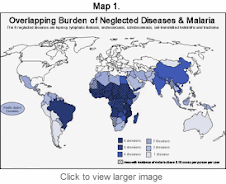Child poverty in Africa: the facts
- 200,000 child slaves are sold every year in Africa. There are an estimated 8,000 girl-slaves in West Africa alone. (sources: BBC 5 October, 2001 & Anti-Slavery Society)
- About 120,000 African children are participating in armed conflicts. Some are as young as 7 years old. (source: Africa Children’s Charter)
- Children account for half of all civilian casualties in wars in Africa. (source: Africa 2015)
- One in six African children dies before the age of five. Most of these deaths could be prevented. (source: Africa 2015)
- Nearly one third of children in Sub-Saharan Africa are underweight. (source: UNICEF)
- In sub-Saharan Africa, measles takes the life of a child nearly every minute of every day. An effective measles vaccine costs as little as $1 per child. (source: UNICEF)
- Between 12 and 14 million African children have been orphaned by HIV/AIDS. (source: World Bank/UNICEF)
- Nearly 2 million children under 14 years old are HIV positive. (source: UNICEF)
- 43% of children in Sub-Saharan Africa do not have safe, accessible drinking water. (source: UNICEF)
- 64% of children in Sub-Saharan Africa do not have adequate sanitation. (source: UNICEF)
- Only 57% of African children are enrolled in primary education, and one in three of those does not complete school. (source: Africa 2015)
- For every 100 boys there are only 83 girls enrolled at primary school. (source: World Bank)
- The above information is available at www.standupforafrica.org.uk/projects/facts
Did you know?
- Between 1973 and 1979, child poverty was at 12%
- 1979 - 1983, child poverty rose to 18%
- In the 1990s, poverty was at 21%
According to the www.nccp.org/topics/chilpoverty.html, 13 million children in America live in poverty. This is 17% of all children.
Poverty affects childrern's
- Ability to learn
- Physical health
- Mental health
childtrendsdatabank.org, www.un.org,










No comments:
Post a Comment